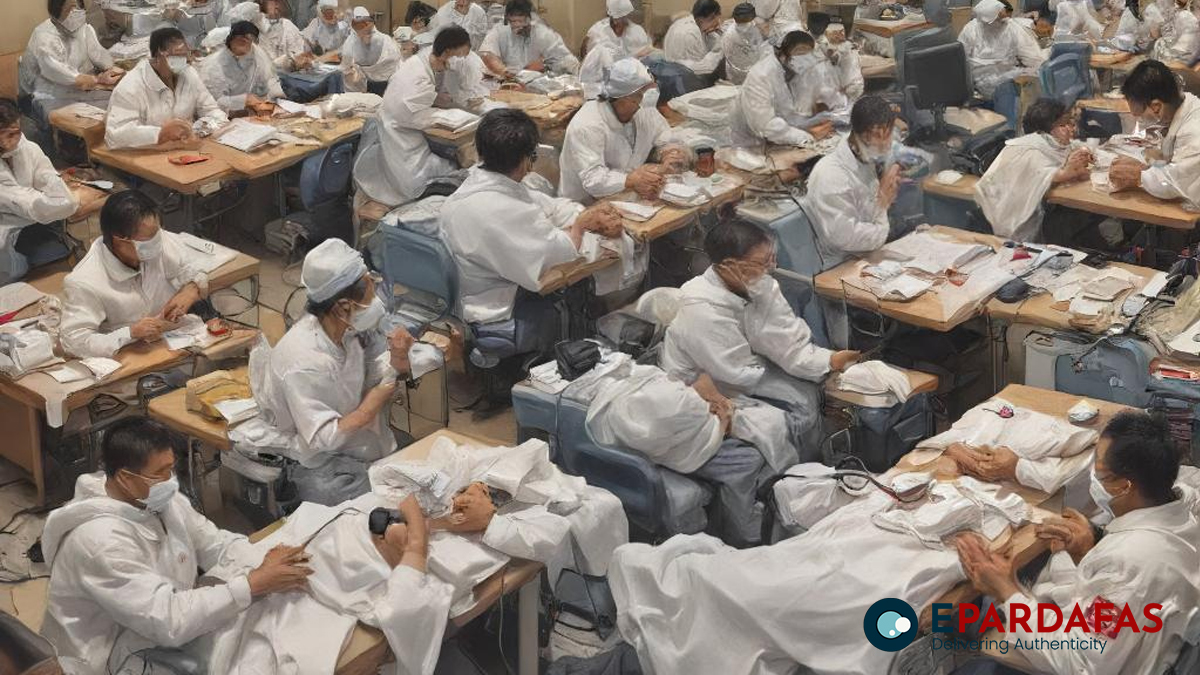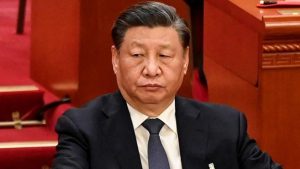
Chinese Mother Seeks Justice After Scammers Coerce Disabled Son into Breast Augmentation Surgery

In a shocking incident that has sparked widespread outrage across China, a mother appeared on national television to seek justice for her 19-year-old intellectually disabled son after he was tricked into undergoing breast augmentation surgery by scammers. The young man, desperate for a job, was lured into the procedure by false promises of employment at a cosmetic surgery clinic in Wuhan, a central city in China.
A Trap Disguised as a Job Opportunity
The teenager had been searching for work when he was approached by the clinic, which claimed that the surgery would help him gain popularity as a livestreamer and, in turn, earn money. The clinic even convinced the vulnerable youth to take out a loan of 30,000 yuan (approximately $4,180) to cover the cost of the surgery. The boy’s mother, distraught by the ordeal, revealed the extent of the manipulation in an emotional television interview last week.
“For the sake of money, one can give up one’s humanity,” read one of the thousands of comments on China’s popular social media platform Weibo, where posts about the incident have garnered over 27 million views. Outraged users condemned the scammers, calling them “worse than beasts” for exploiting the young man’s innocence and desperation.
The Aftermath of the Scam
Although the mother, with the help of the television station and lawyers, managed to have the loan canceled, the damage had already been done—the breast augmentation surgery had been completed. The teenager was left not only physically scarred but also emotionally traumatized by the experience.
This incident is not an isolated case. As China’s economy continues to face significant challenges, scams targeting vulnerable populations—especially students and young job seekers—have been on the rise. Recruitment scams, false advertising, and loan traps are becoming increasingly common as the country grapples with economic instability, a trade war, the aftermath of COVID-19, a prolonged property crisis, and cautious consumer spending.
A Growing Crisis in Youth Employment
China is facing a record high in youth unemployment, which hit 21.3% in June of last year. This alarming figure prompted the government to stop publishing the benchmark, stating that the statistics should exclude students still enrolled in school. Despite this, the National Bureau of Statistics reported that 33 million young people, aged 16 to 24, were seeking employment.
Liu Aihua, a spokesperson for the statistics bureau, acknowledged the ongoing pressure on employment, particularly for key groups like recent graduates. The situation has become so dire that some students have turned to scams themselves, further exacerbating the problem. The first ten months of 2023 saw a 68% increase in prosecutions of minors involved in phone and internet scams, according to the country’s top prosecuting agency.
The Human Cost of Economic Desperation
The trauma endured by the Wuhan teenager was further compounded by the need to undergo a second surgery to remove the breast implants. His mother, visibly shaken, described the pain of seeing the scars left on her son’s chest.
“It pains me to see the two scars under my son’s chest,” she said, her voice trembling with emotion as she recounted the ordeal on television.
This tragic incident serves as a stark reminder of the human cost of economic desperation and the predatory tactics that can ensnare the most vulnerable members of society. As China continues to navigate its economic challenges, the need for greater protection and support for its youth has never been more urgent.
Input from Reuters
- PM Oli Hails Thailand Visit and BIMSTEC Summit Participation as Fruitful and Impactful
- PM Oli Vows to Deepen Nepal-India Relations Following Productive Talks with Indian Counterpart
- Kathmandu Chokes on Toxic Air as Health Concerns Mount
- Myanmar Earthquake Death Toll Surpasses 3,300, UN Calls for Global Support












Comments